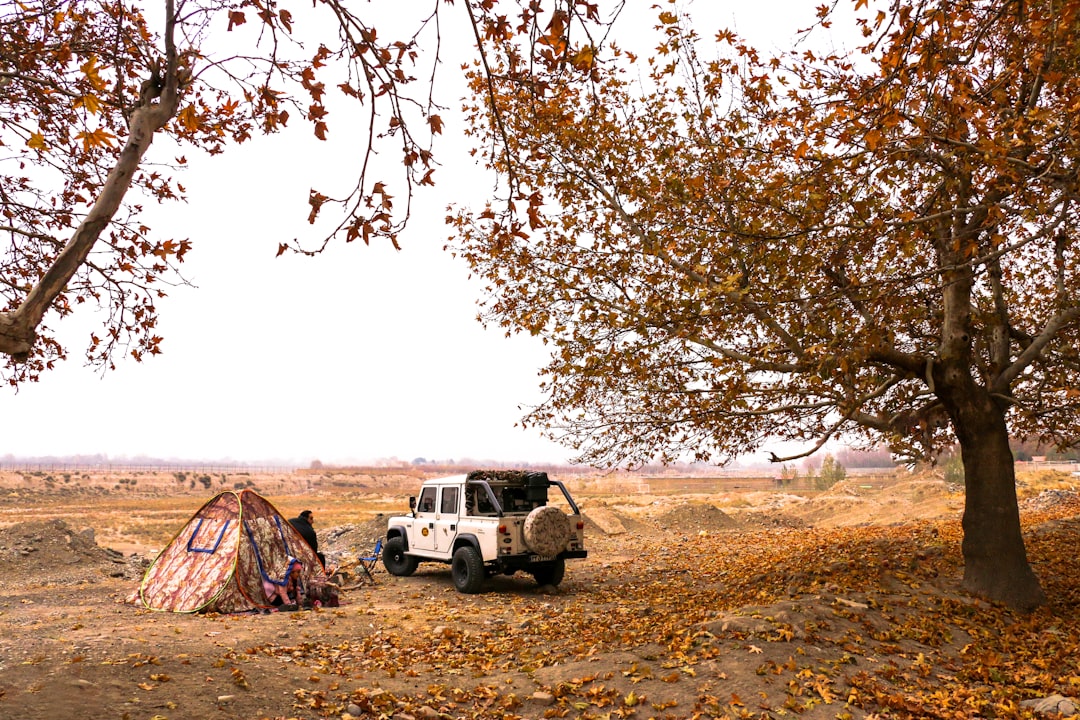Accommodation Nightmares: From Hostels to Horrors
You've just finished a long visa run or a cross-country flight, and you arrive at your pre-booked apartment late at night. The photos promised a clean, minimalist space. The reality is a room above a deafening karaoke bar, smelling faintly of damp and despair. We've all been there.
Bad accommodation is a classic nomad hurdle. Maybe the city is fully booked for a massive sporting event you didn't know about, or the online booking was a clever work of fiction. You end up in a place that's grim, noisy, or just plain uncomfortable.
The Scenario: You booked a room that turns out to be half the advertised size, with a window facing a brick wall and a shared bathroom that hasn't seen bleach since the turn of the century.
The Nomad's Takeaway: These experiences are frustrating, but they teach a valuable lesson in due diligence. You learn to read reviews more critically, ask for recent photos, and always have a backup plan. It forces you to refine your accommodation-finding system for the next city, making you a smarter, more efficient traveler.
The Transport Trap: When A to B Takes Forever
Logistics are the backbone of a nomadic life, and sometimes that backbone breaks. A quoted 24-hour VIP bus journey mysteriously morphs into a 32-hour ordeal with uncomfortable seats clearly designed for someone half your size. Your fellow passengers might be a group of rowdy workers sharing vodka and singing folk songs all night on a train through Siberia.
Or worse, you find yourself in a vehicle that is actively trying to kill you. A rental car with brakes that are more of a suggestion than a function, a taxi with a hole in the floor offering a direct view of the speeding pavement, or a driver who navigates dense traffic like a video game character with infinite lives.
The Scenario: You're crammed into a shared taxi in West Africa, designed for four people but currently holding seven, plus a goat. The journey is long, hot, and suspension is a distant memory.
The Nomad's Takeaway: Transport hell teaches patience and adaptability. You learn to pack a power bank, noise-canceling headphones, and snacks as non-negotiable items. You also learn that sometimes, paying a premium for a more reliable private driver or a flight is a sound business investment in your sanity and productivity.
The Toilet Test: A True Measure of a Location's Reality
Nothing brings you crashing back to reality faster than a challenging toilet situation. The romanticism of 'getting off the beaten path' evaporates quickly when you're faced with a hole in the ground at a remote bus station, a squat toilet with no paper, or an open pasture designated as the official pit stop.
After a few such encounters, your standards shift dramatically. The sight of a clean, Western-style toilet with a functioning flush and a roll of toilet paper can bring a level of joy that is hard to explain to those who haven't experienced the alternative.
The Scenario: A long bus journey, a desperate need, and a rest stop toilet that is, to put it mildly, an unsanitary biohazard.
The Nomad's Takeaway: You learn to be prepared. Carrying a 'go-bag' with hand sanitizer, tissues, and wet wipes becomes second nature. It's a small but powerful example of creating personal systems to overcome infrastructure shortfalls.
The Food Gamble: From Culinary Delight to Diarrhea
One of the great joys of travel is food. But on some days, finding a decent meal feels like a chore. You might be served something unappetizing or utterly unidentifiable, like a stew with hairy llama meat. You might even fall for a tourist trap and end up with a sad, frozen lasagna in the heart of Italy.
Then there's the hygiene lottery. Finding a hair in your food is unpleasant; getting a full-blown case of food poisoning that wipes you out for three days is a genuine business risk. On days like these, the most appealing menu item is a simple chocolate bar and a bottle of clean water from a sealed container.
The Scenario: You try a local delicacy from a street stall that looked amazing, only to spend the next 48 hours in close proximity to your less-than-ideal bathroom.
The Nomad's Takeaway: You develop a sixth sense for food safety. You learn to spot the busy stalls packed with locals, understand basic food hygiene practices, and know when to just say no. It also reinforces the importance of having travel insurance and a small medical kit.































